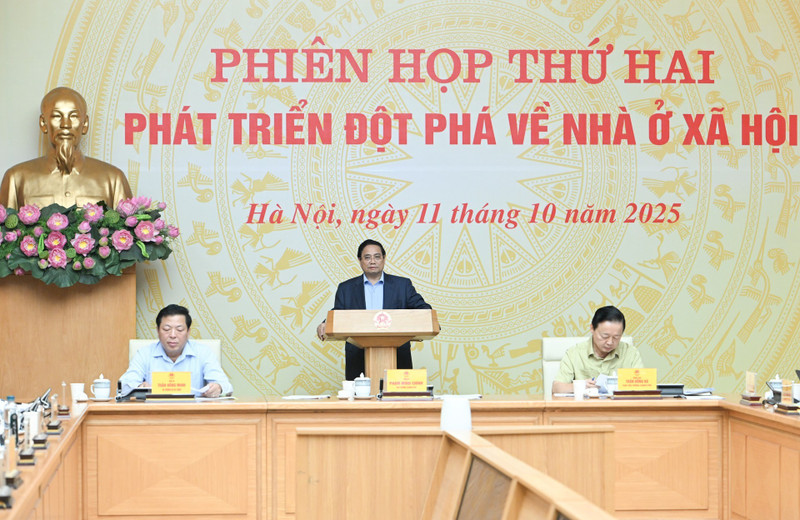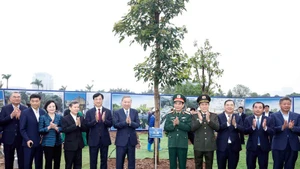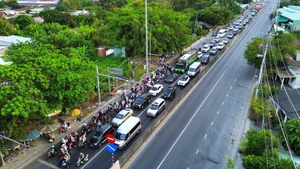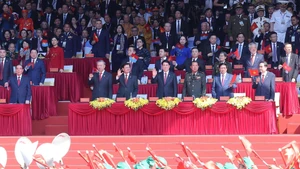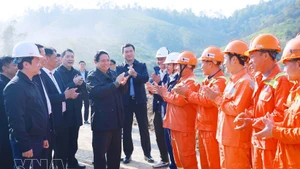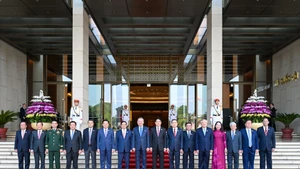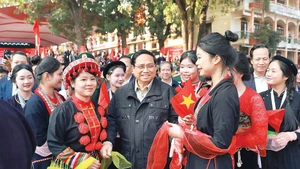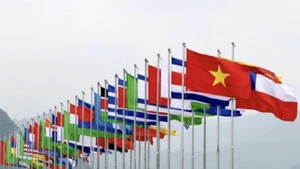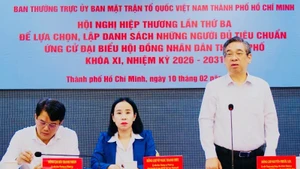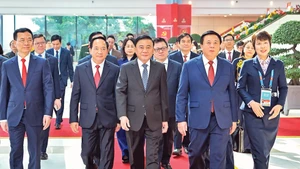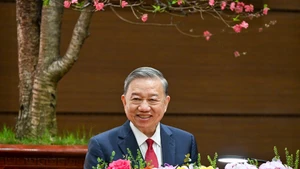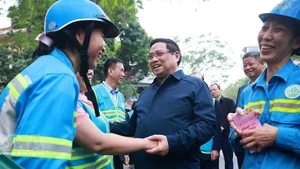Prime Minister Pham Minh Chinh has requested measures to accelerate social housing projects, broaden beneficiary eligibility and forms of rental and rent-to-own housing, promptly submit a decree on national housing fund, and propose a real estate trading centre model.
PM Chinh made the request while chairing the second meeting of the Central Steering Committee for Housing Policy and Real Estate Market in Ha Noi on October 11, which reviewed the Party and State’s policies on managing and developing the real estate market, with a focus on social housing.
He highlighted the social housing policy as a humanitarian initiative of the Party and State, noting that it helps support market regulation and growth, ensure political stability, and promote social welfare and well-being for the people. He stressed that commercial housing and social housing development are closely linked and must progress in tandem, with appropriate regulations and groundbreaking measures for social housing.
Social housing development goes beyond high-rise urban buildings and should be implemented wherever eligible residents need to buy or rent such housing, he said, underlining the urgency of social housing development amid administrative restructuring and the transition to a two-tier local administration system, which is causing many officials and workers to relocate.
The Government leader directed the Ministry of Construction to coordinate with other ministries and agencies, complete the legal framework and address obstacles in developing the real estate market, particularly social housing.
Provinces and cities must plan and allocate land plots for social housing in a stable and sustainable manner, without disrupting existing plans and ensuring essential infrastructure, he said, adding that they must mobilise and diversify resources, including state support, credit, bond issuance, private investment, and fiscal and monetary policy levers, to expand housing supply across high-end, mid-range, and low-income segments, ensuring balanced development and equitable access to essential infrastructure.
Enterprises should cut unnecessary costs to make social housing more affordable and accessible, operating under the principle of “harmonising benefits, sharing risks,” the PM stressed.
The government leader asked for further enhancements in technology, information systems, and databases, along with updated regulations for managing and supervising real estate brokerage and trading floors. He also demanded establishing a state-managed centre for real estate trading and land-use rights, emphasising transparency, efficiency, proper authority.
Enterprises must to take the initiative and proactively assume responsibility toward the public, especially low-income and vulnerable groups who rely on community and corporate support, the PM said.
He called for broader and more flexible eligibility for social housing policies, including preferential and subsidised support, particularly for residents in remote and underserved areas.
The Government leader directed the State Bank of Viet Nam to speed up the disbursement of the 145 trillion VND (over 5.5 billion USD) credit package for social housing, making it more accessible while maintaining proper oversight. He also ordered measures for controlling speculative real estate lending to prevent market bubbles.
He asked for stronger policy communication to ensure public understanding and compliance; promoting and replicating exemplary models, effective practices, and innovative approaches; and condemning misconduct or profiteering that undermines a healthy and sustainable real estate market and the humanitarian objectives of social housing policy.
Under the project to build 1 million social housing units, a total of 696 projects are currently underway nationwide, with 637,048 units. It is expected that an additional 35,125 social housing units will be completed nationwide by the end of the year, bringing the total for 2025 to 84,712 out of 100,275 units, achieving 84% of the PM’s target for the year.
